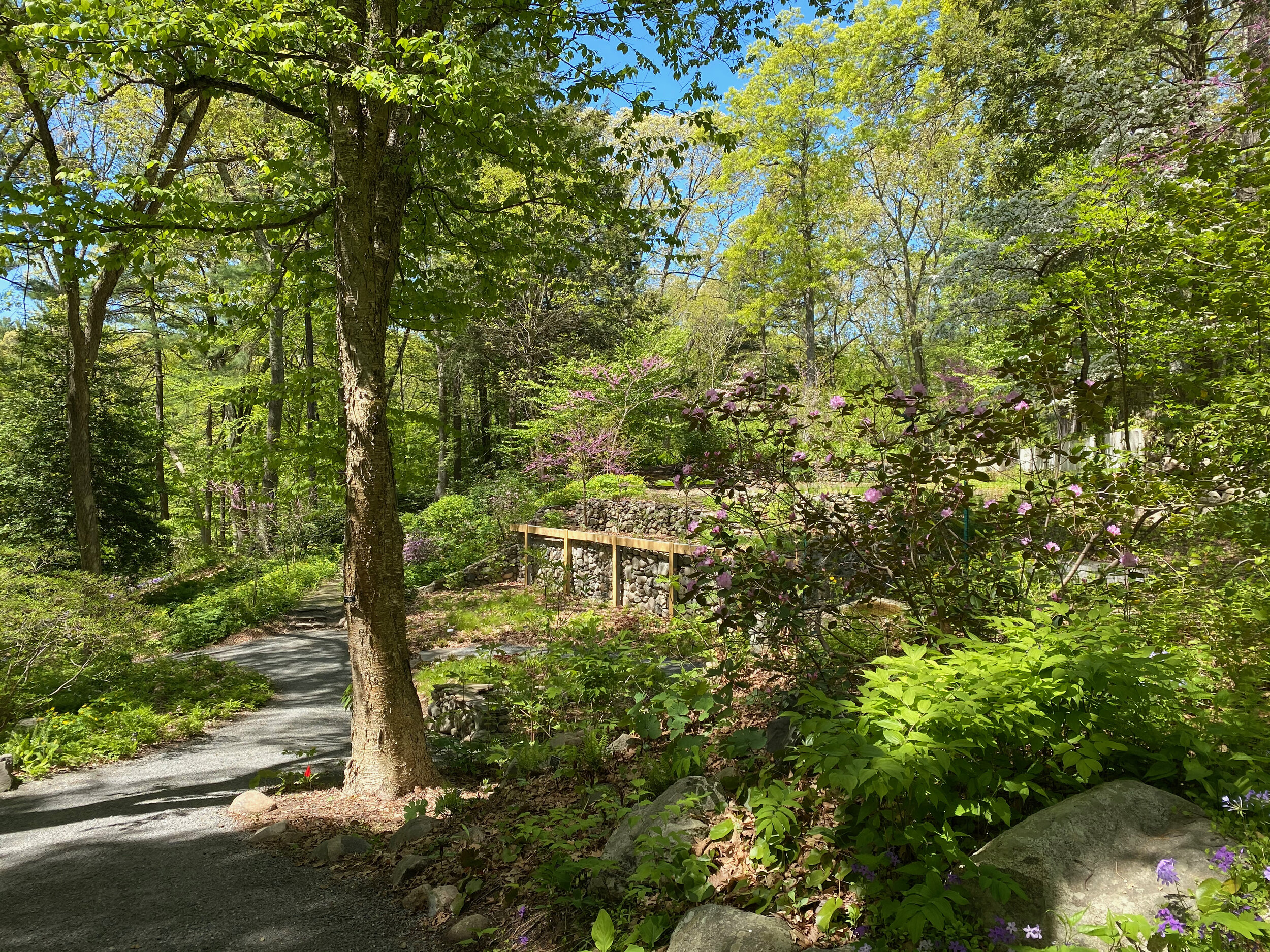Built in concert with the Nevin Welcome Center and located at its visitor parking lot, the Bioswale greets visitors to Cornell's botanical garden with a bold display of plants—and it soaks up stormwater. Unlike conventional landscapes, which put runoff into drains and pipes, high-performance landscapes like the Bioswale help to restore natural water cycles using plants and soils. They cleanse and cool the runoff that flows from roofs and pavement, recharging local aquifers and protecting natural waterways from pollution, flooding, and erosion.
In the LAF study, Cornell researchers Michele Palmer and Mujahid Powell found that the bioswale is reducing runoff by 31% (78,000 gallons annually), cutting peak flows in major storms by 81%, improving soil health, increasing biodiversity, and galvanizing support for green infrastructure among the fifty thousand people who visit Cornell Plantations each year.
Toby Wolf authored the Botanical Garden's master plan and served as landscape architect for the Welcome Center and Bioswale while a Senior Associate at Halvorson Design Partnership, working in collaboration with landscape designer Irene Lekstutis, architects Baird Sampson Neuert, and civil engineers TG Miller.
The Welcome Center and the Bioswale have earned LEED Gold certification, and the Bioswale has been recognized by the Society for College and University Planning with its Honor Award for Excellence in Landscape Architecture. Dr. Christopher Dunn, the E. N. Wilds director of Cornell Plantations, has called the Bioswale "one of the premier gardens of its kind, inspiring other botanic gardens to create similar landscapes."
Find out more about the LAF study here, and about Cornell Plantations' Bioswale here.








